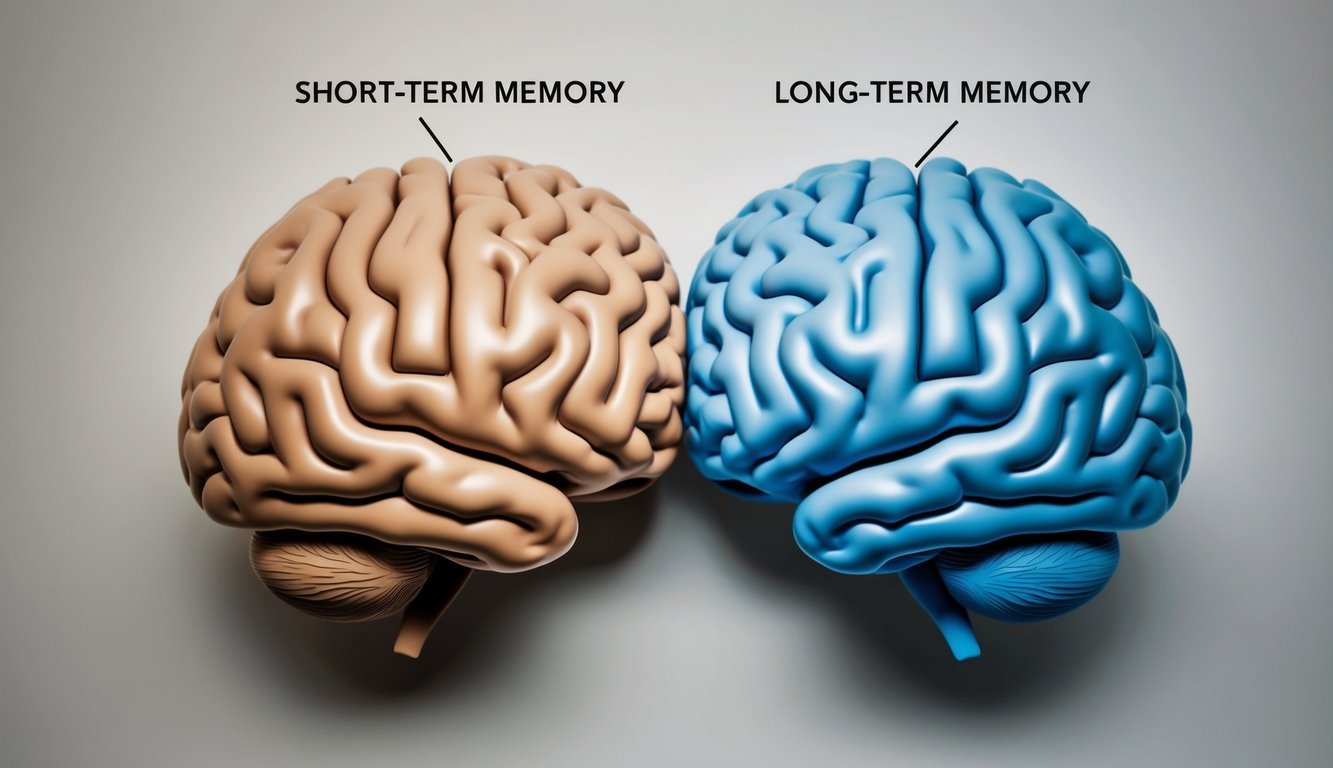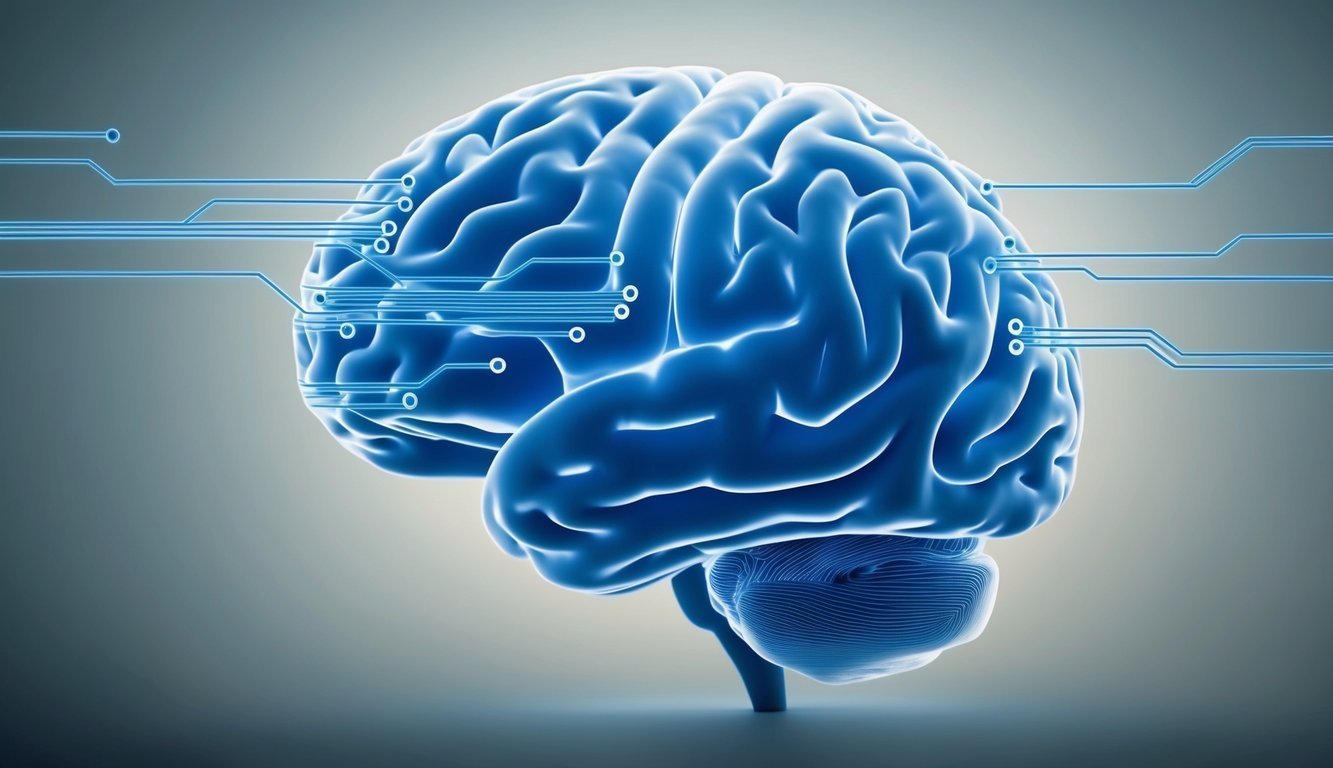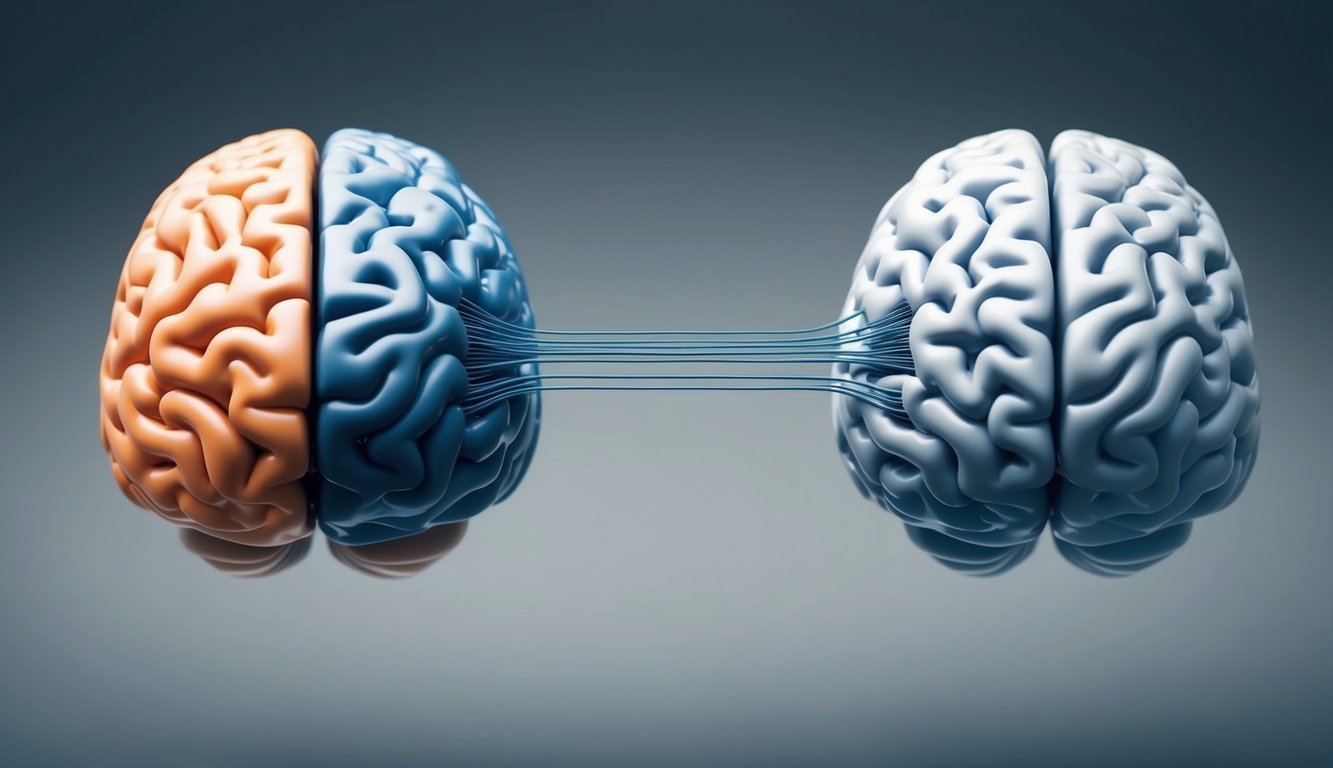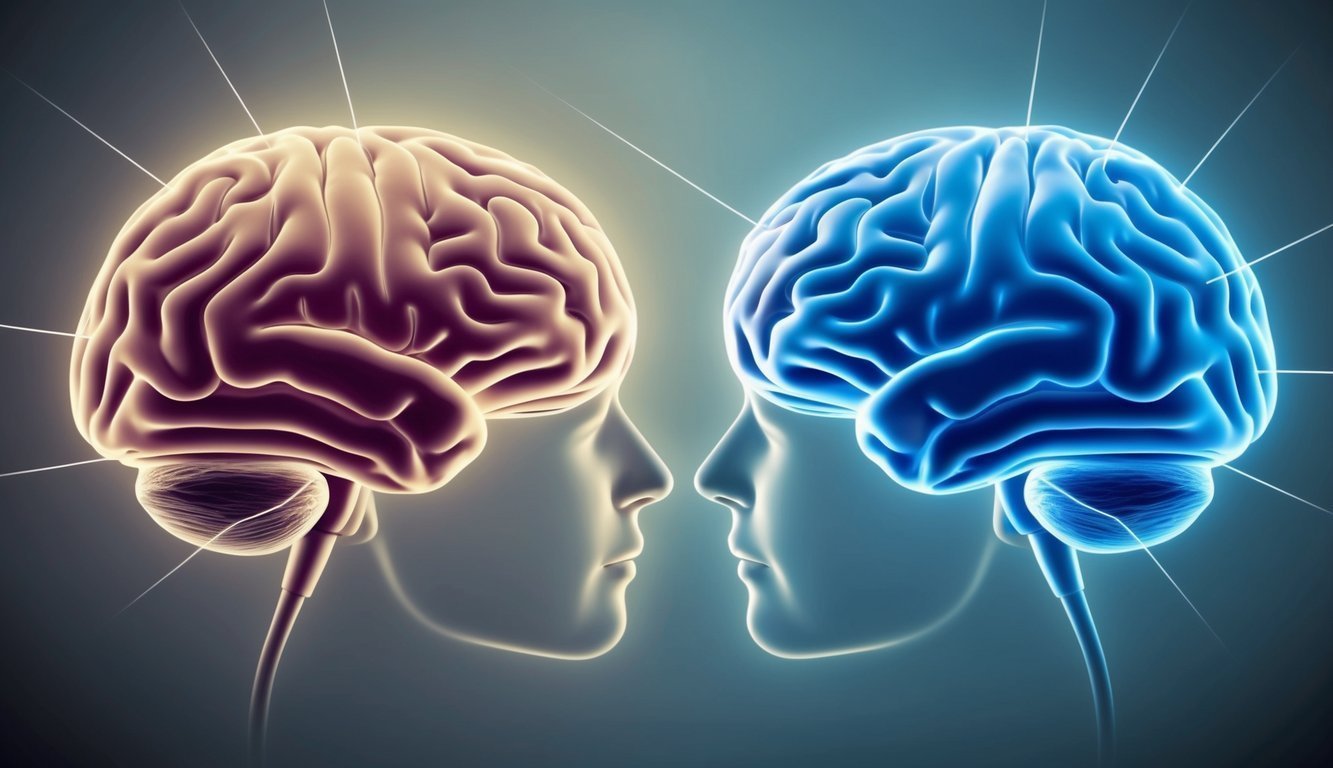PsychNewsDaily Publishers
100 Summit Drive
Burlington, MA, 01803
Telephone: (320) 349-2484
PsychNewsDaily Publishers
100 Summit Drive
Burlington, MA, 01803
Telephone: (320) 349-2484
Memory systems include sensory, short-term, and long-term memory, each with distinct functions, capacities, and encoding processes that influence learning and cognitive performance.

Memory systems can be divided into specific categories based on their duration and functions in cognitive processes. These classifications provide insight into how we acquire, store, and recall information in the human brain.
Short-term memory (STM) and long-term memory (LTM) differ significantly in terms of their storage capacity and duration. STM typically retains a small amount of information for a fleeting period, usually ranging from 15 to 30 seconds, with the capability of holding around 7 items, plus or minus 2.
In contrast, LTM can store extensive amounts of information for much longer durations, potentially throughout a lifetime. The transition of information from STM to LTM is achieved through a process known as consolidation, which is facilitated by repetition, meaningful connections, and emotional relevance.
Studies indicate that STM and LTM operate via different neural mechanisms. While STM is primarily reliant on temporary electrical activity in the prefrontal cortex, LTM involves structural alterations across various brain regions, particularly the hippocampus.
Sensory memory represents the initial stage of information processing. It holds sensory impressions for a short period after the original stimulus has disappeared. This memory type is modality-specific, meaning there are distinct systems for different senses.
Examples of sensory memory types include iconic memory (visual), echoic memory (auditory), and haptic memory (touch). These systems enable the brain to swiftly and efficiently process a vast array of sensory data.
Sensory memory is crucial for perception and attention, as it allows us to make sense of our surroundings by providing a continuous flow of information to more advanced cognitive processes. Without sensory memory, our understanding of the world would lack cohesion and clarity.
Explicit memory, also referred to as declarative memory, involves the conscious recollection of information. This includes episodic memory (personal experiences) and semantic memory (factual knowledge). Explicit memories can be articulated and are often linked to specific contexts.
Conversely, implicit memory functions without conscious awareness. It encompasses procedural memory (skills and habits), priming effects, and classical conditioning, influencing behavior and performance without the need for explicit recall.
Research has demonstrated that explicit and implicit memory systems can be separated, allowing one system to be affected while the other remains intact. This dissociation is observable in certain neurological conditions, offering insights into the intricate nature of human memory.

Memory encoding and storage are essential processes that define our ability to retain and recall information. These mechanisms involve intricate neurological activities that convert sensory inputs into durable mental representations.
Encoding serves as the primary step in memory formation. It encompasses the transformation of sensory input into a form that the brain is capable of processing and storing. Information encoding occurs through various methods:
• Visual encoding: Processing images and visual details
• Acoustic encoding: Capturing sounds and auditory information
• Semantic encoding: Grasping the meaning of information
Short-term memory plays a vital role in this phase, serving as a temporary repository for new information. The hippocampus is critical for converting short-term memories into long-term ones.
Focus is integral to successful encoding; the more attentively an individual engages with information, the more likely it is to be effectively encoded.
A variety of strategies can bolster memory storage:
Spike-driven learning in synapses represents a neural mechanism that facilitates efficient storage. This process enhances the connections between neurons firing simultaneously, solidifying memory pathways.
Additionally, sleep contributes significantly to memory consolidation, aiding the transition of information from short-term to long-term storage.
The brain organizes various types of information across different memory systems:
• Declarative memory: Retains facts and events
• Procedural memory: Preserves skills and methodologies
• Episodic memory: Maintains personal experiences
• Semantic memory: Stores general knowledge
Sensory memories, such as iconic (visual) and haptic (touch) memories, are briefly stored before being further processed or discarded. Working memory actively manipulates information for cognitive tasks.
Long-term memory possesses a substantial capacity and can hold information for extensive periods, relying on the reinforcement of neural connections through repeated retrieval and rehearsal.

Recall and retrieval of memory involve sophisticated processes that enable us to access stored information. These mechanisms are subject to various influences and can be improved through specific strategies.
Memory retrieval refers to accessing stored information within the brain. This involves activating neural pathways tied to particular memories.
The brain employs diverse strategies for short-term versus long-term retrieval. Short-term memory retrieval often depends on sustaining active neural firing patterns.
Long-term memory retrieval necessitates reactivating dormant neural connections, which can be a more intricate and time-consuming process in comparison to short-term recall.
Retrieval cues are essential for memory access, and these cues may be internal (thoughts, feelings) or external (sights, sounds, smells).
Multiple factors affect the efficiency of memory recall:
Rehearsal and refreshing can greatly impact memory retention and recall. Regularly reviewing information strengthens neural connections.
Stress and anxiety can disrupt recall by interfering with normal brain function. In some cases, relaxation techniques may enhance memory retrieval.
Rehearsal is a vital method for shifting information from short-term to long-term memory. It involves mentally repeating or revisiting information.
Types of rehearsal include:
Attention is crucial for both the encoding and retrieval processes. Concentrated attention during learning amplifies memory formation and recall.
Divided attention during encoding can weaken memories; however, some automatic processes may still occur even with limited attention.
Effective attentional control is essential for successful memory retrieval, particularly when navigating distractions or competing information.

Memory is fundamental to learning and problem-solving. It significantly influences cognitive functions and shapes how individuals obtain, retain, and utilize knowledge.
Working memory is crucial for tasks involving learning and problem-solving. It allows individuals to temporarily hold and manipulate information while engaging in cognitive tasks.
Short-term memory facilitates the speedy recall of recently learned information, aiding immediate learning and decision-making. In contrast, long-term memory safeguards knowledge over long periods, supporting cumulative learning.
The synergy between short-term and long-term memory is essential for effective learning. Information initially stored in short-term memory can transition to long-term memory through repetition and meaningful associations.
Cognitive psychology investigates how memory affects various cognitive processes. Research has indicated that individuals with learning disabilities may experience challenges in working memory, impacting their problem-solving capabilities.
Memory is significant in:
Studies suggest that poor problem solvers frequently struggle with working memory tasks, underscoring the relationship between memory and cognitive performance.
Improving memory can significantly enhance problem-solving skills. Some effective strategies include:
Active recall techniques have proven to bolster memory retention and refine problem-solving skills. Partaking in regular mental exercises and sustaining a healthy lifestyle also supports overall cognitive functionality.

Memory disorders can significantly disrupt an individual’s daily life and sense of identity. These conditions affect both short-term and long-term memory processes, leading to various cognitive functioning challenges.
Memory disorders encompass a variety of conditions that impair the ability to form, retain, or recollect memories. Alzheimer’s disease is the most common, characterized by gradual memory loss and cognitive deterioration.
Vascular dementia, resulting from impaired blood flow to the brain, frequently leads to difficulties with planning, reasoning, and memory. Korsakoff’s syndrome, typically linked to chronic alcohol misuse, severely affects short-term memory and the ability to create new memories.
Transient global amnesia is a temporary condition in which individuals suddenly lose their memory, typically lasting less than 24 hours. Though rare, it can be distressing for those experiencing it.
Ecological validity in memory research strives to ensure that studies accurately reflect real-world memory functioning.
Conventional laboratory assessments may not truly represent how memory operates in everyday situations.
Researchers are creating more naturalistic tasks to evaluate memory, such as simulated daily activities or utilizing wearable cameras to document real-life events for subsequent recall testing.
Virtual reality technologies are increasingly employed to develop immersive, realistic scenarios for memory evaluation, enabling controlled environments that closely resemble real-world contexts.
Longitudinal studies that monitor individuals over time offer valuable insights into memory changes throughout life, promoting a more in-depth understanding of memory disorders and their development.
“`